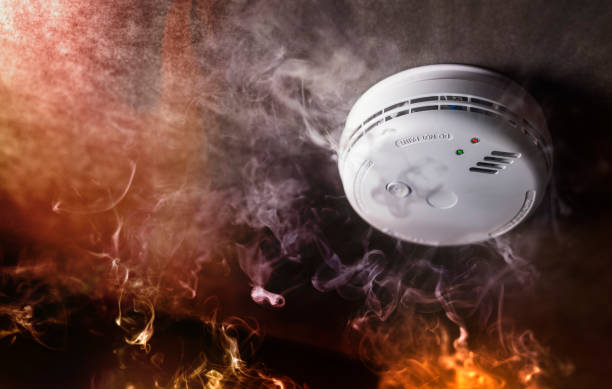Fire Fighting
The Importance of Fire Safety in the Hospitality Sector
Fire is a significant risk to any business, but even more so in the hospitality sector: hotels, restaurants, bars, leisure centres etc. are at a higher risk of a fire as they can be occupied up to 24 hours a day. Being responsible not only for your own safety but that of the employees and guests, you know more than anyone that keeping safety standards high at all times in your hospitality business is paramount.

In recent events, there have been big blazes that have caught the headlines, such as the tragic Grenfell Tower incident in June 2017 where a shocking 72 people sadly lost their lives, and hundreds were left homeless. Fire-related fatalities totalled 334 in England in 2017-18, which is higher than the previous year with 263 fatalities.
In the hospitality sector, there have been some big blazes too, not as beastly as Grenfell Tower, but still disastrous nonetheless. These fires endangered the lives of the guests where better fire-fighting equipment and procedures could have further prevented the event of a fire in the first place.
To help you keep up high standards of fire safety in your hospitality business, we have highlighted in this article the importance of fire safety in the hospitality sector and the best practices for fire prevention.
The Importance of Fire Safety in the Hospitality Sector
Fire safety should never be overlooked as the results of poor practices can be truly devastating. Below are some consequences of poor fire safety practices.
Injuries & Fatalities
One of the most important reasons for fire safety is to prevent any injuries, or worse, deaths. Keeping everyone safe is crucial in the case of a fire at your hospitality establishment.
Even with the best fire-fighting equipment installed in your establishment, injuries and fatalities can occur, especially when a fire is out of control.
But it still minimises the risk as much as possible when you have staff using the equipment correctly and have good fire procedures in place to get everyone out as safely and efficiently as possible.
Learning about fire hazards is the key to preventing fire from occurring. Teaching a workforce about the combustion triangle is a good place to start. The triangle consists of the necessary ingredients that fires spark from: heat, fuel, and an oxidizing agent. Once these basics are learned, then hazards are more visible in the workplace since the employees know what to look for.
The next on the list is risk assessment training. This comes right after recognizing fire hazards because employees become responsible for taking action against hazards present already and eliminating or reducing them. Generally, assessments look at the following:
- Emergency exits and routes
- Active and passive fire protection systems
- Safe storage/removal of dangerous substances
- Firefighting equipment like extinguishers
- Evacuation plan
- Clear communication with others about fire hazards
- Staff fire safety training
- How to help those who are more vulnerable than others
If these assessments are not completed, then the workplace will end up becoming incredibly dangerous over time as more hazards will accumulate due to the fact that no one will know how to address those fire hazards and eliminate them.
Learning how to respond to a fire is a large part of fire safety training and is essential in creating a clear understanding of protocol in emergency situations so employees will be sufficiently prepared to fight the fire or get out safely and efficiently. Fire training courses teach how to use firefighting equipment like fire extinguishers, how to activate the fire alarm, and how to work as a team, as well as learning what one’s own responsibilities are. However, these are only a few subjects that are covered in emergency response training
First Aid Life Saving Skills
Why is First Aid Important for the Hotel Staff?
First Aid knowledge is invaluable for both you as the individual and for your community. It enables you to assist persons who become injured in the event of an accident or emergency situation until help arrives. First Aid skills can be applied in the home, the workplace or in public locations, therefore the more First Aid certified people there are in a community the safer that community becomes.
Becoming First Aid certified not only benefits you as an individual but it extends to your family, friends, co-workers and even the community as a whole. As unpleasant as it is to talk about, accidents and emergency situations are not completely preventable or unavoidable.
If an accident happens in the workplace, in your home or in a public space, being a helpless witness to an emergency situation can potentially worsen the situation.
This is why it is very important for as many people as possible to have at least a basic knowledge of First Aid.
The hospitality industry can be more prone to work in with knives, hot oil, slippery floors, and many other hazards.
However, certain precautions must be put in place to minimise these incidents and prevent severe disasters. Make sure to have a first aid kit in place to keep the employees safe.
Also, providing first aid training goes a long way in ensuring the health and safety of employees – quite apart from being a legal obligation!